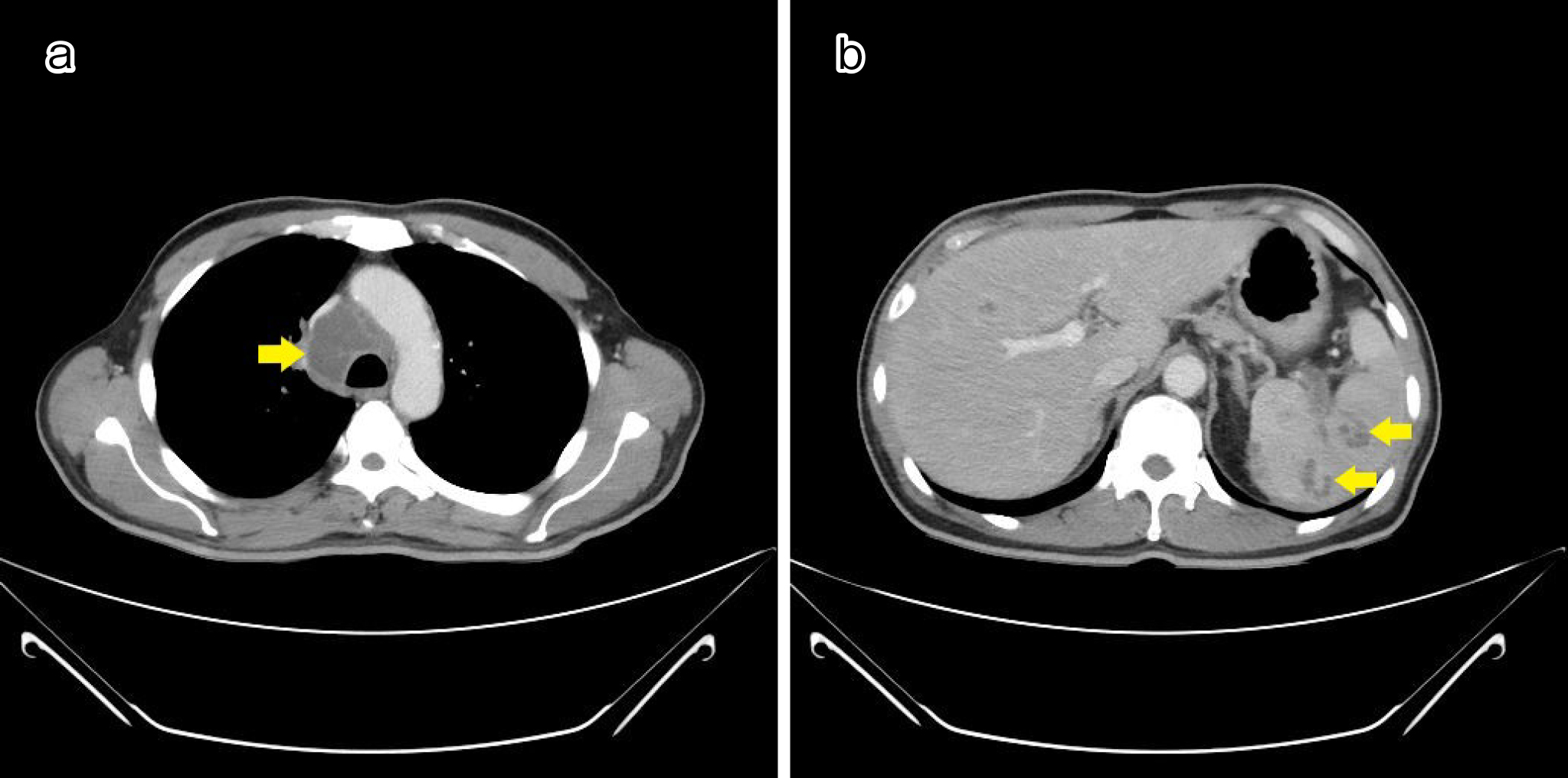Corresponding author: Chee Yik Chang, ccyik28@gmail.com
DOI: 10.31662/jmaj.2023-0186
Received: November 10, 2023
Accepted: March 1, 2024
Advance Publication: June 3, 2024
Published: July 16, 2024
Cite this article as:
Chang CY. Melioidosis Masquerading as a Mediastinal Abscess. JMA J. 2024;7(3):443-444.
Key words: Melioidosis, splenic abscess, mediastinal abscess
A 57-year-old male farmer with type 2 diabetes mellitus, residing in an area where melioidosis is not endemic, presented with a 3-week history of intermittent fever, accompanied by malaise and weight loss. He denied experiencing chest pain, shortness of breath, or hemoptysis. A chest computed tomography (CT) scan revealed a superior mediastinal abscess and multiple splenic abscesses (Figure 1). The blood culture was positive for Burkholderia pseudomallei, confirming the diagnosis of melioidosis, while the tuberculosis test was negative. The bronchoscopy examination revealed no abnormalities. The patient received a 4-week course of intravenous ceftazidime, followed by oral trimethoprim-sulfamethoxazole. A follow-up CT scan revealed that the mediastinal and splenic abscesses had completely resolved.

Melioidosis can manifest with diverse clinical presentations, including pneumonia, septic arthritis, encephalomyelitis, and internal organ abscesses (1). Notably, mediastinal abscesses due to melioidosis are uncommon. The Darwin Prospective Melioidosis study found that mediastinal lymphadenopathy/mass was present in 99 out of 1148 patients (8.6%) with culture-confirmed melioidosis (2). The presence of mediastinal and splenic abscesses should raise a strong suspicion of melioidosis, especially in endemic areas.
None
CYC: Conception and design of the study, acquisition of data, drafting the article, final approval of the version to be submitted.
Chee Yik Chang: 0000-0002-3104-8168
Written consent has been obtained from the patient to publish the information, including the photographs.
Chang CY. Periorbital cellulitis and eyelid abscess as ocular manifestations of melioidosis: a report of three cases in Sarawak, Malaysian Borneo. IDCases. 2019;19:e00683.
Currie BJ, Mayo M, Ward LM, et al. The Darwin Prospective Melioidosis study: a 30-year prospective, observational investigation. Lancet Infect Dis. 2021;21(12):1737-46.